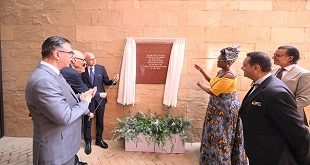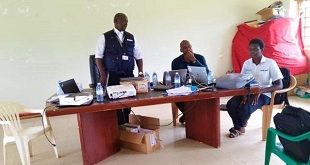
Connection materials produced locally will be procured as part of the government commitment to the Buy Uganda, Build Uganda policy
Kampala, Uganda | THE INDEPENDENT | The government said it will not yield to pressure to allow the importation of electricity connection materials that can be produced locally as the implementation of the free Electricity Connection Policy (ECP) resumes.
The policy which enables Ugandans to get connected to the national grid for free if no pole is required is largely funded by loans from the World Bank, the Islamic Development Bank and the African Development Bank, with Uganda playing counterpart funding. The policy was suspended last year hardly two years after being launched when the government programs were disrupted by the onset of Covid- 19.
It is supposed to run up to 2027, by which year the country should have attained 60% access to power from less than 30 currently according to the National Development Plan 3 and Vision 2020.
This should be achieved by connecting at least 300,000 homesteads per year.
“The planned high number of new connections requires a corresponding high budget provision from government which became a challenge especially after the outbreak of Covid-19 due to many competing demands for resources and this caused significant delays in making new connections by the service providers,” says a statement from the Energy and Mineral Development Ministry.
By December 7th 2020 when the policy was officially suspended, there was a backlog of 200,500 completed applications. Also of the connections made so far, the companies were yet to be paid about 103 Billion Shillings. The government says to-date, it has cleared about 42 Billion Shillings and within the next two quarters, all the companies will have their arrears cleared.
The policy which resumes on Monday has also been revised to accommodate those who are able and willing to pay to do so in cases where government has no resources to implement the policy.
The government through the Rural Electrification Agency has been able to procure over 87,500 connection materials under the African Development Bank funding in addition to the 2,598 connection materials under the Islamic Development Bank funding phase I.
On its part, the government has allocated 14.2 Billion Shillings from 2020/2021 releases to UEDCL and small service providers to partly pay for already made connections and commence new connections.
The service providers are UMEME Ltd and the small ones which are Uganda Electricity Distribution Company Limited (UEDCL), Kilembe Investments Limited (KIL), Kyegegwa Rural Electric Co-operative Society (KRECS), West Nile Rural Electrification Company Limited (WENRECO), Pader Abim Community Multipurpose Electricity Cooperative Society (PACMECS), and Kalangala Infrastructure Services Limited (KIS).
These interventions will see the small service providers backlog cleared, and that one for Umeme reduced by 42% according to Minister Mary Goretti Kitutu.
Minister Kitutu says the backlog for all upcountry stations has been cleared and it is only in the central region where there are completed applications pending connection.
The next phase according to the minister will be the commencement in August of the free connection where one pole is required.
On the open market, this would cost the customer 2.3 Million Shillings. The government is still negotiating with the World Bank for a US$400 million loan which will be used for the commencement of the one-pole connections, hopefully by August.
One of the issues that are still delaying the conclusion of this loan deal is the government’s insistence that the connection materials required, which can be produced locally should be procured locally as part of the government commitment to the Buy Uganda, Build Uganda policy.
She says for example, there is no reason why materials like transformers and cables should be imported.
She however says that should the government get funds from other sources before August, they will start on the one-pole connections earlier.
*****
URN
 The Independent Uganda: You get the Truth we Pay the Price
The Independent Uganda: You get the Truth we Pay the Price


